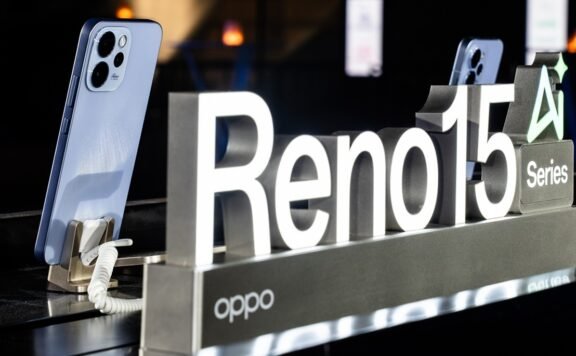Review Central spoke to Richard Yu, the Huawei Consumer Business Group CEO, about how artificial intelligence is ushering the next era of mobility
How do you envision the future of mobility devices?
The future of mobile is the “Intelligent Phone”, an AI-powered device. Huawei has a commitment to fueling innovation and collaborating with leading partners, to transform the way people experience the world. The Superphone will introduce new information-management architecture.
Currently, users initiate information flow from the physical world. The information enters the smartphone and from there it goes to the digital spheres. In the future, the smartphone will be an indispensable part, a double of the user. This will result in two new streams of information from the superphone: one to the reality, the other to the user.

Richard Yu, the Huawei Consumer Business Group CEO.
What is Huawei doing to bring the “Superphone” to reality?
The Superphone will be special because it will proactively interact with the physical world. The smartphone is no longer a passive device, meant only for communication between the phone and the user. Instead, with this new information-management architecture, the Superphone will adapt to address the challenges of information explosion.
As a company, Huawei’s technology innovations such as the machine learning capabilities on Huawei Mate 9, has already captured the attention and recognition from the global industry. The device, which was announced in January 2017, already features advances at the forefront of hardware and software innovation. In addition, we also announced the Mate 9 Pro and the Porsche Design Mate 9, which were Huawei’s first Google Daydream-ready smartphones.
We plan to take this a step further by announcing something phenomenal the world has never seen or heard in terms of AI. This will happen at IFA 2017, which will open in Berlin, Germany, by end of this month.

What sort of investment does Huawei pump into its research and development initiatives?
As a leading technology company, Huawei is one of the top spending companies in research and development capabilities. We have invested a significant amount of our annual sales revenue to research and development efforts, and have established 16 research centers around the world. In 2016, Huawei continued to invest in the future, with the company’s annual spending on research and development reaching CNY76.4 billion (US$11 billion).
In terms of AI, what sort of vision does Huawei have?
The concept of AI is not new. Over the past few years, different tech companies have introduced their own forms of proprietary AI tools. We will next on the list to introduce our own AI technology. We will be revealing the AI based assistant of Huawei during my keynote speech at IFA, taking place in Berlin in September this year. Don’t want to give out too much at this stage, but I can say IFA will see Huawei launch its own AI Chip alongside our all-new processor, the Kirin 970.
Today our focus is to bridge innovation and technology, create an elite ecosystem of industry visionaries and offer products that significantly enhance the way people connect with one another. As we look to the future, we’re at the threshold of an exciting new era where we’re breaking through barriers to improve the way we interact with the world. The introduction of the Intelligent Phone is the next evolution in mobile that will provide intelligence to every aspect of our lives, enriching the way we experience the world around us.







